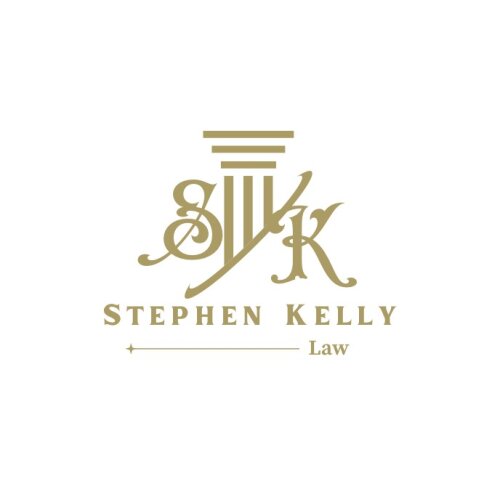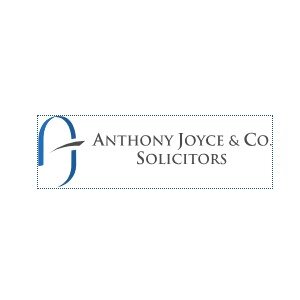Best Real Estate Contracts and Negotiations Lawyers in Dublin
Share your needs with us, get contacted by law firms.
Free. Takes 2 min.
Free Guide to Hiring a Real Estate Lawyer
List of the best lawyers in Dublin, Ireland
About Real Estate Contracts and Negotiations Law in Dublin, Ireland
Real estate contracts and negotiations in Dublin, Ireland involve intricate legal frameworks that govern the sale, purchase, leasing, and transfer of property. These processes require a thorough understanding of local laws, regulations, and market conditions. Whether you're a first-time homebuyer, a seasoned investor, or looking to lease commercial space, having well-drafted contracts and effectively negotiated deals is crucial. Engaging with legal professionals who specialize in real estate can help ensure that your transactions are legally sound and in your best interest.
Why You May Need a Lawyer
There are several situations where individuals might require legal assistance with real estate contracts and negotiations in Dublin:
- Buying or Selling Property: A lawyer ensures that all terms are clear and that the transaction complies with local laws.
- Leasing Agreements: Whether you're a landlord or tenant, a lawyer can help draft and review lease agreements to protect your interests.
- Dispute Resolution: In case of disputes over property boundaries, contract breaches, or tenant issues, legal advice is vital for resolution.
- Property Development: For developers, legal guidance is necessary to navigate zoning laws, planning permissions, and environmental regulations.
- Financing: Lawyers can assist with mortgage agreements and financial arrangements related to real estate transactions.
Local Laws Overview
Several key aspects of local laws are particularly relevant to real estate contracts and negotiations in Dublin:
- Land and Conveyancing Law Reform Act 2009: This act updated and simplified many aspects of property law in Ireland.
- Residential Tenancies Act 2004: Defines the rights and obligations of landlords and tenants in residential properties.
- Stamp Duty: A tax on property transactions that varies depending on the type and value of the property.
- Registration of Title Act 1964: Establishes the framework for the registration of property ownership through the Land Registry.
- Property Services (Regulation) Act 2011: Regulates the activities of auctioneers, estate agents, and property management agents.
Frequently Asked Questions
What documents are required for a property sale?
Typically, you'll need the title deed, planning permissions, building regulations compliance certificates, and property tax details.
How long does the conveyancing process take?
The conveyancing process can take anywhere from 6-12 weeks, depending on the complexity of the transaction and any potential issues that arise.
Do I need a surveyor?
It's advisable to hire a surveyor to inspect the property for any structural issues or defects before finalizing the purchase.
What is gazumping?
Gazumping occurs when a seller accepts a higher offer from another buyer after already agreeing to a sale. While legal, it's considered unethical.
Can I negotiate the terms of a lease?
Yes, both landlords and tenants can negotiate lease terms, including rent, duration, and property use clauses. Legal assistance can be beneficial in these negotiations.
What happens if the buyer or seller defaults on the contract?
If either party defaults, they may be subject to penalties or legal action. The specific remedies will depend on the terms of the contract.
How are property disputes resolved?
Property disputes can be resolved through mediation, arbitration, or litigation, depending on the nature of the dispute and the preferences of the parties involved.
What is Stamp Duty, and who pays it?
Stamp Duty is a tax on property transactions. The buyer typically pays this tax, which is calculated based on the property's purchase price.
Is it necessary to register property ownership?
Yes, registering property ownership with the Land Registry ensures the legal recognition of your title and protects against potential disputes.
Can foreign nationals buy property in Dublin?
Yes, foreign nationals can purchase property in Dublin, but they must comply with the same legal requirements as Irish citizens.
Additional Resources
For more information and assistance, consider the following resources:
- Property Registration Authority: Manages the registration of property ownership.
- Citizens Information: Provides details on property laws and rights.
- Law Society of Ireland: Offers a directory of practicing solicitors.
- Irish Property Owners' Association: Supports property owners and landlords with legal and regulatory advice.
- Residential Tenancies Board: Governs residential tenancies and dispute resolution between landlords and tenants.
Next Steps
If you need legal assistance with real estate contracts and negotiations in Dublin, Ireland, consider the following steps:
- Research: Conduct initial research to understand your specific needs and the complexities involved in your situation.
- Consult Professionals: Engage a qualified real estate lawyer specializing in Dublin's local laws and regulations.
- Prepare Documentation: Gather all necessary documents related to the property and any previous communications or agreements.
- Seek Expert Advice: Take advantage of consultation services offered by real estate and legal professionals to explore your options.
- Stay Informed: Keep updated with any changes in real estate laws and market conditions in Dublin.
Lawzana helps you find the best lawyers and law firms in Dublin through a curated and pre-screened list of qualified legal professionals. Our platform offers rankings and detailed profiles of attorneys and law firms, allowing you to compare based on practice areas, including Real Estate Contracts and Negotiations, experience, and client feedback.
Each profile includes a description of the firm's areas of practice, client reviews, team members and partners, year of establishment, spoken languages, office locations, contact information, social media presence, and any published articles or resources. Most firms on our platform speak English and are experienced in both local and international legal matters.
Get a quote from top-rated law firms in Dublin, Ireland — quickly, securely, and without unnecessary hassle.
Disclaimer:
The information provided on this page is for general informational purposes only and does not constitute legal advice. While we strive to ensure the accuracy and relevance of the content, legal information may change over time, and interpretations of the law can vary. You should always consult with a qualified legal professional for advice specific to your situation.
We disclaim all liability for actions taken or not taken based on the content of this page. If you believe any information is incorrect or outdated, please contact us, and we will review and update it where appropriate.















